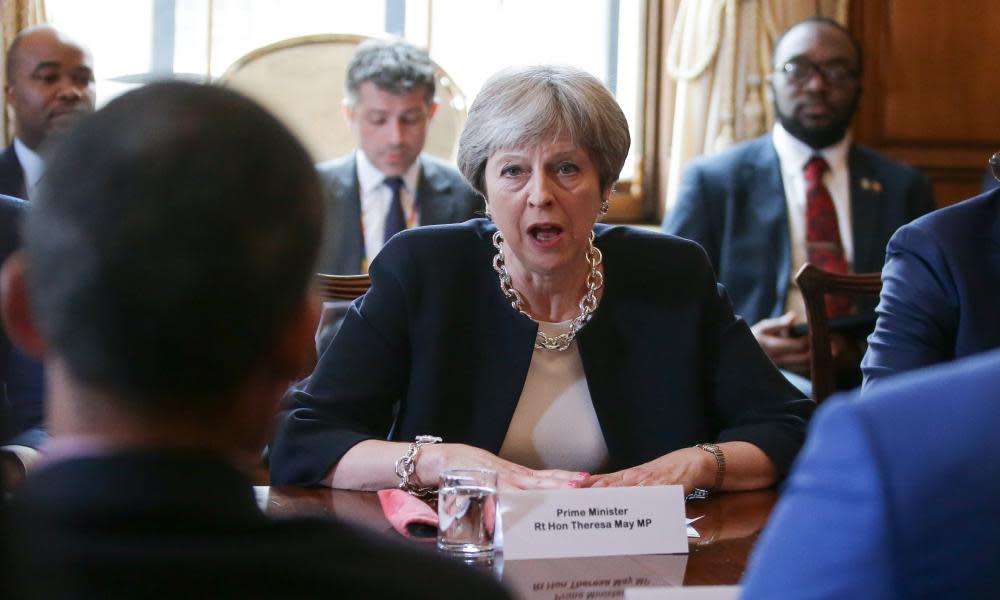Are civil servants in the Home Office particularly anti-migrant?

As the Windrush scandal continues to unfold, the former Treasury permanent secretary Nick Macpherson poses the question on social media whether Home Office civil servants would have done the same under milder former Tory home secretaries Willie Whitelaw or Douglas Hurd as under Theresa May. Do as they are told, that is.
Official doctrine says it’s not us, guv. It’s them, the ministers. Ministers call the shots; ministers win or don’t win a share of available spending; ministers decide the policy and so shape a department. Civil servants carry it out, whether they like it or not.
The former head of the civil service Bob Kerslake has talked about “Nazi” policies, but are UK civil servants any different to public officials under authoritarian regimes? A policy may be immoral but, if it’s legal, civil servants carry it out.
If things go wrong, it is the minister who takes the rap
Several cabinet secretaries have come and gone since Robert Armstrong served under Margaret Thatcher in the 1980s but his memorandum on the duties and responsibilities of civil servants has neither been withdrawn nor contradicted: in fact it forms part of the civil service code. Civil servants serve “the Crown” and for all practical purposes that means the ministers in post. Full stop. They advise, then do what they are told, as if they were automatons.
What is the alternative? That civil servants have minds of their own and may decide things off their own bat? That would imply they had values, that they cared what happens to this or that group of people, that they took a view on the justice of a policy or otherwise. Or just that they know how to run administrative systems and that ministers, other than an occasional one, don’t.
The truth is somewhere in between these extremes, but it’s not recognised in any authorised version. Big departments such as the Home Office are full of bureaucratic nooks and crannies where decisions are made daily about process, without much, if any, reference upwards. Civil servants consume media like everyone else and if they read that May wants something and it coheres with what their managers are asking, most just go for it.
To that desire to get on and do the job has to be added departmental culture. The Home Office has always taken its identity from custody, social control, the enforcement of norms, with only occasional glances towards inclusion and emancipatory citizenship. Boundaries chop and change, so the custodial bit now gives the Ministry of Justice its sense of purpose, but the core function remains the same.
Does that imply that the permanent secretary, Philip Rutnam, is any more illiberal or liberal than he was when he arrived from the Department for Transport last year? No, but he will quickly have breathed in the ethos and assessed what his colleagues will and won’t do. A certain punitiveness and judgmental quality is in the departmental DNA, and even low-level staff pick it up, but that does not mean Home Office civil servants are anti-migrant.
Civil servants were given a new steer and priorities when May became home secretary in 2010. Subsequently we can safely assume her pushy and noisy special advisers made sure that her will was known, and it was carried out with, more or less, the assent and maybe even the enthusiasm of civil servants.
But doctrine is doctrine. It says that if things go wrong, it is the minister who takes the rap and resignation hoves into view, depending on the government’s strength in the Commons and the prime minister’s readiness to support the miscreant. When prime minister and the minister responsible for a policy are the same person, the doctrine becomes worthless. A great yawning gulf has opened in the theory, as well as the practice of how we are governed.
Sign up here for our free, monthly Public Leaders newsletter, and share your view with us via @guardianpublic
Looking for a job in central or local government, or need to recruit public service staff? Take a look at Guardian Jobs

 Yahoo News
Yahoo News 
